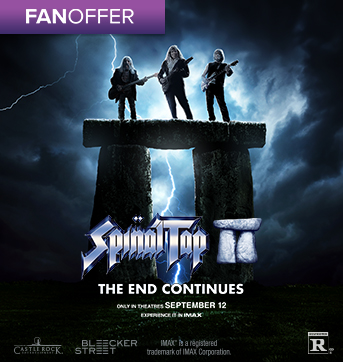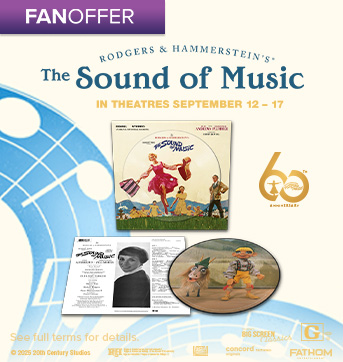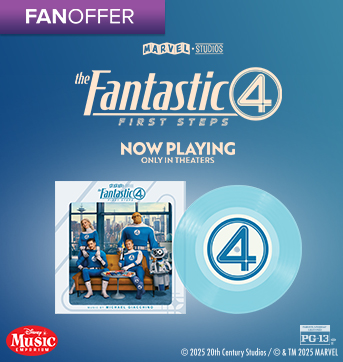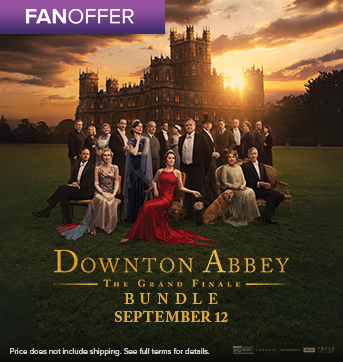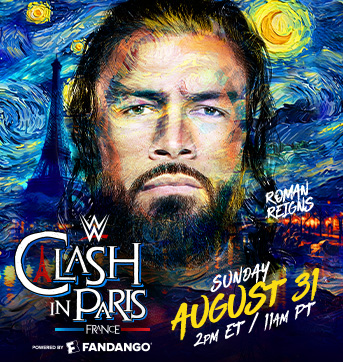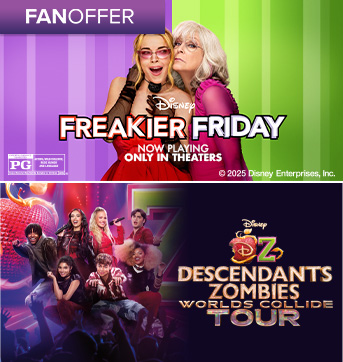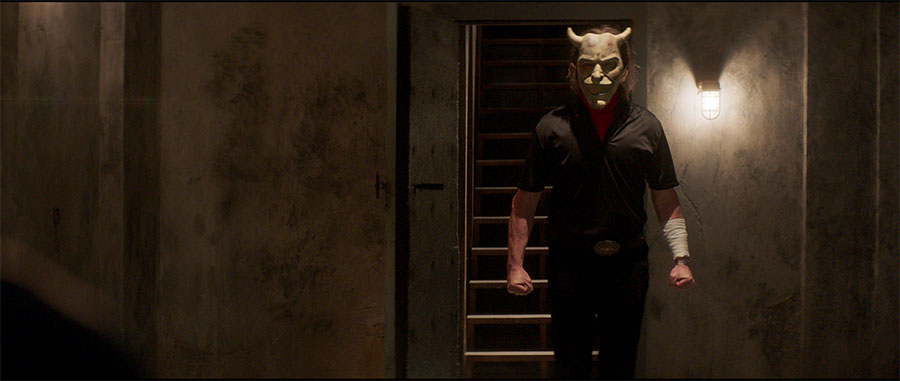
Scott Derrickson (Sinister) and Ethan Hawke have reunited in the horror genre for The Black Phone. The Black Phone is the third feature-length film adaptation of a Joe Hill horror short. Published in 2004, “The Black Phone” tells the story of a community haunted by a serial killer, dubbed the Grabber, who’s kidnapping young boys. Following the most recently kidnapped child, there is a broken black phone in the basement whose frequency allows the previous victims to tap into the phone line and tell the story of how they attempted to escape or what to avoid when the Grabber props the door open. If the story gives off Stephen King vibes, you’re in the right realm — in 2007 it was revealed that Joe Hill was the pen name of King’s son.
Hawke stars as the Grabber — his first villainous turn. But the majority of the film, which draw immense acclaim at 2021’s Fantastic Fest (the film currently has a 100% score on Rotten Tomatoes), is told from the vantage point of the most recent kidnapped boy, Finney (Mason Thames), and his sister, Gwen (Madeleine McGraw). In our interview with Derrickson, to promote tickets for the film going on sale, he details how and why he expanded the sister part from the text — even going so far as adding medium-like dream imagery, a power their mother possessed but drove their parents mad, making an abusive alcoholic of their dad (Jeremy Davies). Their homelife bonds the siblings closer together and puts Gwen on a dream quest to find her brother before it's too late.
For Derrickson, The Black Phone marks a return to his formative genre after going big with the first Doctor Strange film. Derrickson spoke of the personal trauma from his youth that expanded the film from Hill’s story, drops info on the film that informed his stylistic approach for the ghosts in the phone, played us a creepy and in-character voicemail from Hawke, and gave us his insight on why horror can ultimately be a healing artform. This revealing interview was done early to announce that tickets for The Black Phone are now on sale. For horror fans, one of the most anticipated summer movies hits theaters on June 24.
Fandango: Thanks so much for being available for this ticket-on-sale interview. I absolutely loved the movie. Let’s just start from the beginning — were you reading or aware of Joe Hill's horror shorts before his identity was revealed? And have you been wanting to adapt one for a long time?
Scott Derrickson: It's actually a great story. I had had lunch with the German filmmaker Wim Wenders, who’s the godfather to my children, as an aside. We had lunch at this little French bistro in Los Feliz about 17, 18 years ago — something like that. And I wandered up the street after we ate because he was still talking with friends and I went to the Skylight Bookstore in Los Feliz and I went to check out the horror section and "20th Century Ghosts," Joe Hill's first story collection as a book, was on the shelf as a new book. And I was like, "Oh, it's an anthology, interesting." Of course, nobody knew he was Stephen King’s son at that point. And so I read the book, and I read the first story. I just stood there and I read the first story, which is called “Best New Horror”, which is amazing. My production company is trying to produce that now as another film. And I thought the story was incredible. It was just such fresh writing — amazing.
So I bought the book and over the next week I read the whole thing and “The Black Phone” just stood out in my mind — always in the back of my mind — as an extraordinary idea for a film. But I never had time to actually adapt it. So at the time that I read the story nobody knew who he was. He was a brand new writer, fresh on the scene. But by the way, and just an aside, every single story in that book is good. There's not a bad short story in that. I was blown away.
Fandango: And honestly, there's no better store in LA to discover a new writer than just walking in than Skylight Books.
Scott Derrickson: Oh exactly. And there had to be only about maybe a dozen new horror books that were on display, where they had them side by side together. And that was the one that was the most interesting to me that I bought and read. It was great.
Fandango: I also want to ask more questions about Wim Wenders but—
Scott Derrickson: One of my dearest friends in the world, that guy.
Fandango: That's amazing, so many of his films are so important to me — to many people. Since this is a pre-awareness interview, can you set up the brother-sister dynamic that’s kind of the heart of The Black Phone?
Scott Derrickson: Yeah, so there is a sister in the short story, but that was one of the biggest areas that we expanded. I felt that we needed a big female presence in the movie somewhere and in the book, it's an older sister. In the movie, Finney, our lead character, is 12 years old and his sister, Gwen, is nine. And so we really kind of created from scratch this very precocious, audacious, bold, fearless, but also victimized kid who's very protective of her older brother. They live in a violent world, there’s violence in their home, violence with bullies, violence in their neighborhood from the Grabber. And they really look out for each other. As the story of our movie established, she's really the stronger of the two in a lot of ways, at least before the events of the film unfolds. But we had about 30 minutes or so — 28 minutes or so — to really establish that bond between them before they're separated for the rest of the movie. And that first 28 minutes literally is what makes the movie work, because even though they're not together for the bulk of the movie, it is the bond that they have with each other that's really the soul of the film.
Fandango: And in the text, is she — I don't want to mislabel it — clairvoyant?
Scott Derrickson: I'll be really honest with you — I don't remember. That's a good question. I reread it, of course, before we adapted it, but if there’s a hint there, it's not a significant part of the story. In the text, she may be looking for him, but we added the whole part about her having the dreams and the clairvoyance and her mother having that, and having this separate storyline. We don't really spend any time with her in the short story in the way that we do in the film. And her story is really the B-storyline of our whole thing.
Fandango: Yeah. And it comes together really, really nicely having the two storylines, so that's a great move. We’ve got to talk about phones and horror movies because such an iconic part of classic horror movies, from “the call is coming from inside the house,” to Scream, Elm Street, and Mario Bava’s Black Sabbath... There's something horribly invasive about a phone call when you don't know who's calling, which you play around with in this. And it does become an instrument of good in The Black Phone, but it starts also as something that's deeply unsettling, I guess? What are some of your favorite uses of phone within the horror genre, and why is it so cinematic to just watch someone listen to a call?
Scott Derrickson: Oh my God, what a great question. What a great question. There is one phone call in the canon of horror that would probably be my favorite, and it had a big influence on The Black Phone, and that's Rosemary's Baby. There's a scene with Mia Farrow as she's really believing that she's crazy, but also starting to believe that the nightmare dream of the demonic rape that occurs in the movie is real. She starts to really get paranoid, and she goes to a public phone booth. And it's a single shot that's on her, inside the phone booth when she calls her psychiatrist. And the effectiveness of that scene for me always had to do with the audio and Polanski's choice to put that very heavy '70s phone filter on not just the therapist, but also on her. So you're outside the phone booth watching her, but you hear her and him through the distorted phone filter, almost like you're a third person eavesdropping on a line where you're hearing the phone filter sound for both.
I found that really effective in that scene, and every time I saw that movie, I thought that scene was so good. And I thought that the audio quality had a lot to do with the kind of displacement feeling that that scene had. And so when I came to do The Black Phone, I thought, "Well, I'm going to definitely give that same kind of phone filter sound to the kids, but I'm not going to give it to Finney because I want him to still feel grounded and present in the world." But then when you start to see the ghost kids — which I'm not giving away, it's even in the trailer — but when you start to see them manifest in the basement, the sound as they're speaking is still that phone filter sound. So Finney's on the phone and he can't see them, but he can hear them. And seeing them but still hearing that distorted audio tone is, again, very displacing. And I got that straight from the public telephone scene in Rosemary's Baby.
Fandango: That is such a fantastic answer. I mean, that's my favorite horror movie. But as soon as you said the phone call on that, I could instantly picture it and hear it. And they also just removed the last phone booth in New York City, so very appropriate.
Scott Derrickson: I saw that yesterday. It was yesterday, right? Or did I see it today? I just saw that, I think, this morning, the image of that. What a landmark event.
Fandango: But now horror writers have to figure out how to write in that cell phones don't work, or are left behind. So if a horror movie is ever set in a specific era, it seems like you're free to use so many everyday items that you're not able to now because of technology. Can you talk a little bit about the setting here — the importance of the early '80s Denver?
Scott Derrickson: Yeah. The movie is set in Denver in 1978. And it's not set there in the story in that it's not a period piece, and it's not set in North Denver in the book. While I liked the story, the way the movie really came about was I had been in therapy for a couple of years — really dealing with a lot of the trauma and, specifically, a lot of the violence that I grew up with. And there was violence in my home. It was a very violent neighborhood. I was bullied a lot. I was the youngest of like 12 or 13 kids on a single block, almost all boys, and I was the youngest. And it was just a violent place. A lot of bleeding, a lot of fighting. And I started thinking about maybe trying to channel some of what I had experienced in therapy, and what I had really been doing a deep dive in about my own history, into a kind of American The 400 Blows. That was my idea. But I couldn't come up with an angle that was interesting enough. There wasn't anything about my story that was as interesting as what Truffaut did with that film. I do think that's probably the best childhood performance that I've seen and certainly, probably, the best movie about childhood trauma that I've seen.
I got the idea of merging all of those childhood memories, and the primary memory that I have of my childhood is one of fear. And so taking time, the place, and a lot of the kids, a lot of the actual characters of my own experience in North Denver in the late '70s and merging it with Joe's story. And that's basically what the movie became.
Fandango: Yeah, and I'm glad you brought up childhood trauma because this also was quite healing... I experienced abusive traumas in my childhood, as well, and this was a very kind of healing, cathartic watch. And the story itself is a lot about healing, like Gwen getting closure mother's story, the boys trying to right their heinous deaths. But even when depicting horrible things, how can horror as a genre be a healing tool for the audience?
Scott Derrickson: I mean, I think that the history of horror art in my life has been one of extreme healing. The primary source of healing in my life, frankly — other than my family, other than love and family — is horror. I think that what horror art does is it gives voice to the unspoken and unspeakable fears that we live with, whether it's the fear of the natural world, fear of the faceless killer, fear of the monster, fear of the supernatural, fear of the unknown — always some form of the fear of the unknown. And I think that whether it's dealing with our continuing fear of what will happen, it also, for me, has really been primarily — and this is both as a film fan, a film viewer, and as a filmmaker — it's been a process of confronting that which has been either denied or inaccessible, because it's so traumatic — because it's so scary. And I have always found really powerful experiences with any form of horror art, but especially horror cinema, to be something that releases fear and releases anxiety and kind of inoculates you — almost like a live inoculation against the fear of the future and what is still out there that can harm you.
Fandango: You mention a fear of what's behind the mask. I did want to ask about that mask design, because it's very interesting, because parts could be added and removed. I was wondering if you — or you and Ethan— came up with a kind of template of the psychology of when he's putting on the frown face, when he shows his mouth, when it's a devil smile — like all of that.
Scott Derrickson: Oh, it's a definite deliberate thing that he has either built or acquired, these three masks that all together can make up six masks that he can wear in any configuration that he likes. And I think that he, as a character of the Grabber, is very deliberate in each scene about why he's wearing each mask that he's wearing, and uses the mask as a form of sadism — as a form of inspiring fear in his young victims, and sometimes tries for trust. That's why he does it, but also as a way of concealing his own countenance, his own face — so that he can, in a sense, speak freely and be himself.
Ethan's been quoting Bob Dylan in the Martin Scorsese documentary Rolling Thunder Revue, saying when Bob Dylan wore white face paint for that tour in the late '70s, and he said, "People lie all the time, but put somebody in a mask, and they're going to tell you the truth." I think that is the case for the Grabber. I think he uses it both to purposeful effect, but he also does it because it allows him to feel like himself. If he doesn't have white face paint on of the magician, which you see only glimpses of in the beginning, he's always got to have the mask on. He's not himself without it.
Fandango: And this is Hawke's first like straight villain role, and because you guys have worked together, I'm wondering — did the familiarity with each other kind of help make this an enjoyable shoot? Because he has talked about how he has avoided playing the villain for a while.
Scott Derrickson: Yeah, when I gave him the script, I said, "Look, I don't know if you're even open to doing this, but I want to give it to you. I want you to consider the role." I said, "I don't think you're going to do it," and I told him that straight up. I said, "Because he's a sadistic serial killer. And he wears a mask almost for the whole movie, so you'd be wearing a mask the whole time." And I remember he told me at that time, he said, "You know, as a rule, I really don't play villains." He said, "I have a real belief that once you show that kind of extreme dark side, audiences have a hard time not seeing that in you." And he said, I think his actual phrase was something like, "It would have to be some real Jack Nicholson in The Shining kind of sh**."
I sent him the script, and then I got message the next morning on my phone that he had left late at night. It was his own — one second. Oh, I'm actually going to play it for you. My wife has it here — listen to this. This is a line in the script, not dialogue. So rather than telling me that he’d do the movie, he recorded this. It's a line that's in the script, but not in the movie. Listen to this—
[Scott plays a recording of Ethan Hawke whispering “I’m about to murder the **** out of you. And it’s going to hurt. Go to sleep.”]
So I just woke up in the morning and heard that message, and that was his way of telling me, "I'm going to do this role."
Fandango: [Laughs] That’s unsettling.
Scott Derrickson: You're the only reporter who's gotten that recording, by the way. My wife is sitting next to me, and she just happened to have it on her phone. That's great.
Fandango: I’m just piecing some things together, wow, congratulations. I didn't know. Thank you for taking this time to speak with me. I'll close with two quick questions.
Scott Derrickson: Absolutely.
Fandango: You've done big budget sci-fi, obviously Marvel and lots of horror. What is next for you, and what is maybe a genre that you haven't been able to play in yet that you would like to?
Scott Derrickson: Oh, good question. I'll say this — I do have a big budget film that I'm set to shoot in the fall but can’t talk about.
[At this point, we swear, a random person — not a publicist, but a wrong number looking for 'Alex' — joins our phone line, as if calling in simply because we happened to be discussing The Black Phone.]
That was very strange. This has never happened to me.
Fandango: I have never had that happen.
Scott Derrickson: Wow, that was weird — the ghost in the phone. Gosh, where was I? Oh, I haven't done a straight action movie, which I think I would do. Everything has always been fantastical. You know, I'm not really interested in doing a straight drama, and I'm definitely not interested in doing a comedy. I love genre, and I love genre that really aims for the higher levels of human emotion and experience. I think I would love to do a straight action movie, if it also was character-driven and had something to it. But I'd also like to do another big-budget science fiction movie sometime. I think most of what I read is science fiction. I read a lot of hard sci-fi, and the movies that I tend to want to return to are often science fiction movies; I have a real craving to always be watching those. I've seen Blade Runner, without exaggerating, probably 25 times in my life. I almost watched it again last night. I never get tired of watching that movie. So I think to step back into the big-budget hard sci-fi arena is the thing I'm probably most interested in doing again. But, yeah. Actually, no one has ever asked me that question, and the honest answer to it is mostly 'no, man.' I love the genres I work in, I want to keep working in them; I want to keep working in thrillers, horror, and sci-fi.
Fandango: Awesome. And this is just a little bit more for my notes, because I love the score, but the composer isn't listed anywhere on the database sites—
Scott Derrickson: Oh, you're kidding. Let’s fix that.
Fandango: It’s in the end credits, obviously, but it’s not listed online yet. Call it out. Who did the score?
Scott Derrickson: Mark Korven, who did The Witch and The Lighthouse. I felt that his scores for both of those movies were not only incredibly effective, I thought they were also really uniquely different, and that he had found a way of creating sonic soundscapes that were not rooted in melodies, but still had very powerful themes to them in terms of recurring instrumentation and recurring sounds. There's a primal quality to him. Most composers who were more atonal and more non-orchestral or non-musically thematically driven will tend to be electronic composers, and he's not that, either. I just feel like he fell into an interesting niche between the broader categories of composer that I thought would be right for The Black Phone.
The first time I spoke to him, he had read the script and liked it. Then we were talking about it, and I was giving him little bits and pieces of what I want. He said, "Look, this is really what I need to know." He goes, "In the big picture, what do you want the score to sound like?" And I thought, 'God, what a bold question.' So I thought for a second, I said, "I want the score to sound like childhood fear." He paused for a second and he said, "Okay, I'm going to do this," Like, right there, on the phone. I was like, 'really?' No one ever says that — nobody just comes out right there in the moment and commits to doing a movie on the spot. And I think that's what he did. I think he really did a good job of capturing the fear of the child characters in this movie with the soundtrack. He's just excellent. I hope I work with him again.
Fandango: Cool. Well, thank you so much for your time on this and giving us extra time for questions. I loved this movie, and loved chatting with you.
Scott Derrickson: Thank you. These were really interesting questions. I really enjoyed the interview.
Fandango: Yeah, and thank you for sharing Ethan’s recording. There's going to be so much weird phone stuff on this when I go back to listen to this, appropriately.
Scott Derrickson: Yeah. It's so funny, isn't it? There was that guy just hopping on in the middle. I don't think that's ever happened to me before.
Fandango: It has never happened to me.
The Black Phone is in theaters June 24. Get your tickets today!


